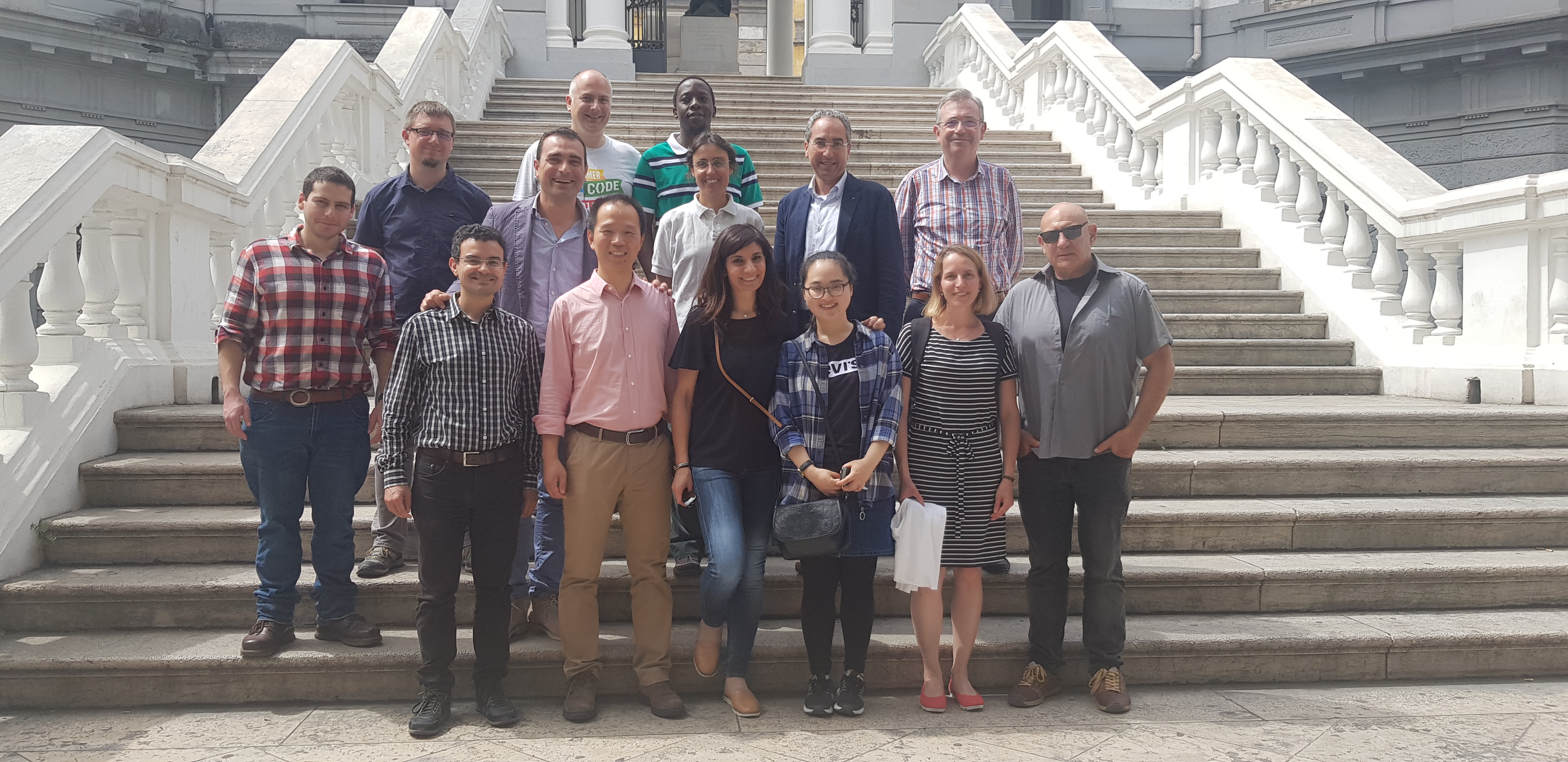An integrative information aqueduct (iAqueduct) is proposed to close the gaps between global satellite observation of water cycle and local needs of information for sustainable management of water resources. In the past decades, various satellite missions have been developed to monitor the global water cycle, in particular the variables related to precipitation, evapotranspiration and soil moisture, often at (tens of) kilometre scales of spatial resolution. Whilst these data are highly effective to characterise water cycle variation on regional to global scale, they are not suitable for sustainable management of water resource, which always needs more detailed information on local (e.g. in terms of information provided by an in-situ sensor, e.g. a TDR for soil moisture or a piezometer for groundwater level) and field scale. To effectively exploit existing knowledge at the regional to global scale we thus need to answer the following questions: How to downscale the global water cycle products to local scale? How to convert the coarse resolution data into fine scale water information at the management scale for water, vegetation and soil processes? And how to use such fine-scale water information to improve the management of soil and water resources? The envisioned iAqueduct aims to accomplish these goals combining EC/ESA Copernicus satellite data (with intermediate resolution) with high resolution Unmanned Aerial System (UAS) and in-situ observations to develop scaling functions for soil properties and soil moisture and evapotranspiration at meter scales. iAqueduct will integrate the various components from the global water cycle observation to local soil and water states in an open-source water information system and test and demonstrate their utility on pan-European scale at a set of carefully selected research sites for sustainable management of water resources. iAqueduct complements the actions developed under the European Strategy Forum for Research Infrastructures (ESFRI) by coordinating a set of European research groups and sites allowing the scaling up to pan-European level under the aegis of the COST action Harmonization of UAS techniques for agricultural and natural ecosystems monitoring(HARMONIOUS) in which participate 70 institutions from 32 countries.
This WaterJPI project is coordinated by the WG3 of the Harmonious COST Action with the following partners: Utwente, UPV, TelAvivUni, UniBasilicata, SLU, UninaIT.


